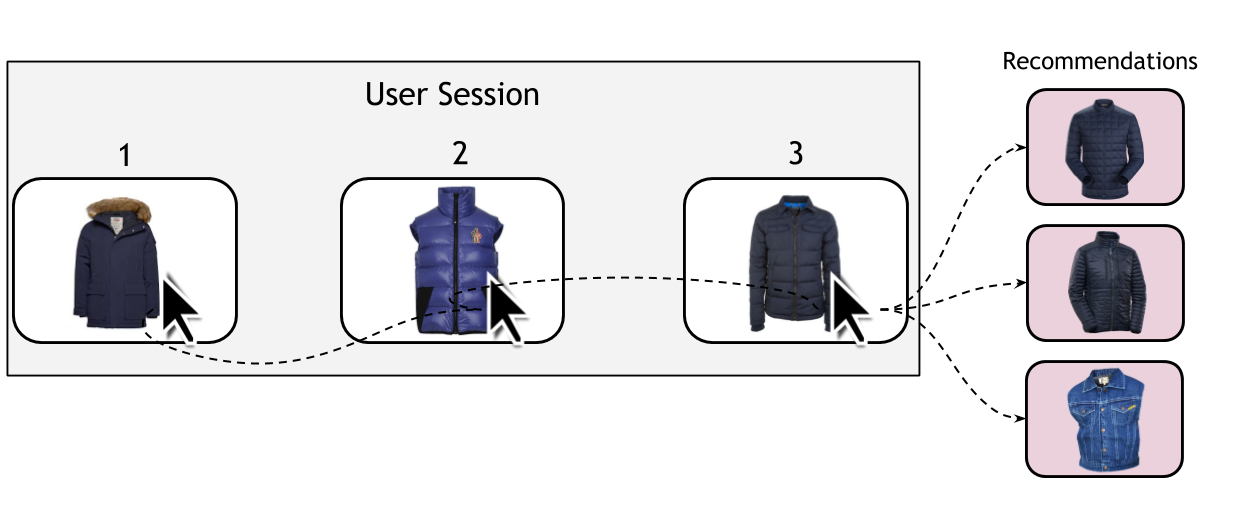Evaluation of Session-based Recommendation Algorithms
Recommender systems help users find relevant items of interest, for example on e-commerce or media streaming sites. Most academic research is concerned with approaches that personalize the recommendations according to long-term user profiles. In many real-world applications, however, such long-term profiles often do not exist and recommendations therefore have to be made solely based on the observed behavior of a user during an ongoing session. Given the high practical relevance of the problem, an increased interest in this problem can be observed in recent years, leading to a number of proposals for session-based recommendation algorithms that typically aim to predict the user's immediate next actions. In this work, we present the results of an in-depth performance comparison of a number of such algorithms, using a variety of datasets and evaluation measures. Our comparison includes the most recent approaches based on recurrent neural networks like GRU4REC, factorized Markov model approaches such as FISM or FOSSIL, as well as simpler methods based, e.g., on nearest neighbor schemes. Our experiments reveal that algorithms of this latter class, despite their sometimes almost trivial nature, often perform equally well or significantly better than today's more complex approaches based on deep neural networks. Our results therefore suggest that there is substantial room for improvement regarding the development of more sophisticated session-based recommendation algorithms.
PDF Abstract


